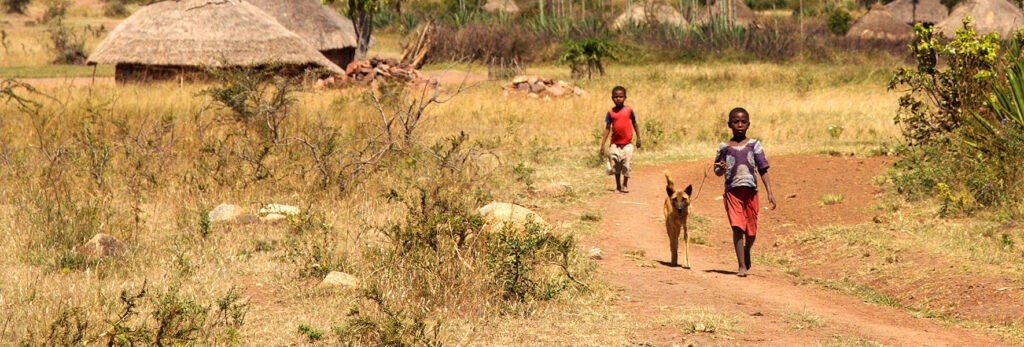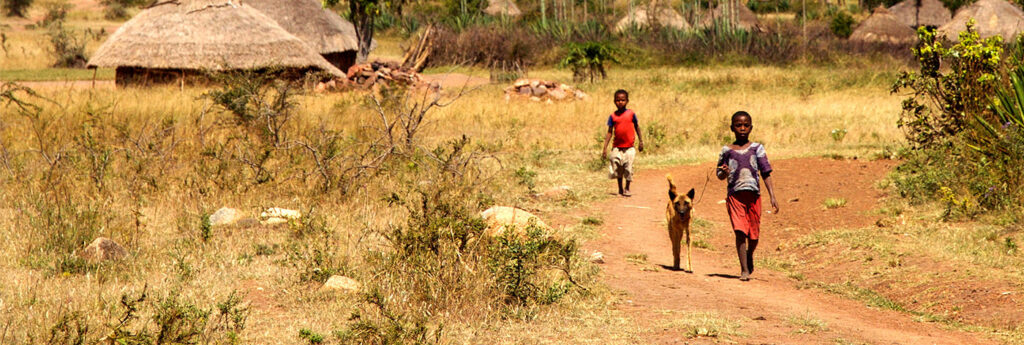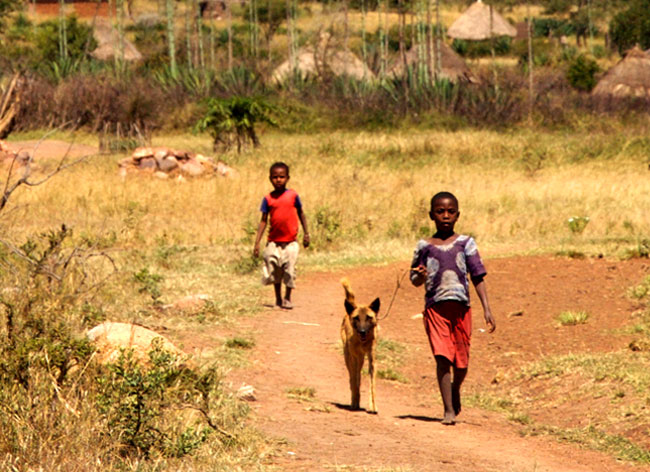Rabies perpetuates health inequality and has a direct impact on the Sustainable Development Goals.
Fear of rabies drives mass dog culling and extreme cruelty with an estimated 100 million dogs killed unnecessarily each year.
Barriers to rabies control are a lack of political and public health leadership, fragmentation of control activities and failure to sustain investment.
Ending human deaths from rabies is an achievable goal
Rabies is 100% preventable. Effective rabies vaccines have existed for over 100 years.
Evidence-based strategies tested in many countries demonstrate the feasibility of ending human deaths from dog-mediated rabies.
By taking a One Health approach with an emphasis on mass dog vaccination, rapid access to human PEP for all suspected rabies victims, and community engagement, human rabies deaths can be eliminated.
Without further intervention an estimated 1 million people will die from rabies between 2020 and 2035.
The Case for Dog Vaccination
Source: WHO NTD report – One Health: Approach for action against neglected tropical diseases 2021-2030
Unless rabies is eliminated in dogs, the source of rabies in humans never reduces, and costly demand for PEP will escalate.
Dog vaccination is around 50 times cheaper than treating humans for rabies.
The average cost of a full course of human rabies treatment is $108, while dog vaccination averages $4. These significant savings can be directed to other health needs.
If dogs are vaccinated effectively, evidence shows that human deaths fall dramatically towards zero and the need for PEP reduces sharply.
Ongoing dog population management, mandatory vaccination, surveillance and cross-border coordination are required to prevent re-emergence.
Rabies is a priority zoonosis in most endemic countries, causing disease and deaths in both animals and humans. The coronavirus pandemic has turned global attention to the challenge of zoonotic diseases and the concept of One Health, that is the intimate link between the health of humans and animals and the environment that sustains them.
Investing in rabies elimination through a One Health approach not only saves lives but also strengthens links between human and veterinary health systems. The benefits extend far beyond rabies to tackle other One Health problems such as Ebola and other cross-species coronaviruses.
Rabies control can be a model for One Health implementation.
Gavi – the vaccines alliance, has included rabies in their investment strategy, agreeing to make human PEP available to partner countries in 2021, although implementation has been delayed by the global Covid pandemic.
Eligibility for Gavi support will include a requirement that countries implement a mass dog vaccination plan.
If implemented fully, Gavi’s commitment could save 498,000 lives by 2035.
Gavi’s commitment is an historic opportunity to galvanise domestic and external support and eliminate this ancient and terrible disease.
A global strategy for rabies elimination has been agreed by key stakeholders and the Tripartite (FAO, OIE, WHO).
Zero By Thirty: The Global Strategic Plan to End Human Deaths From Dog-Mediated Rabies was published in 2018.
The United Against Rabies Forum is bringing together partners from all relevant sectors and regions to implement Zero By 30 and our Working Groups are actively addressing its key objectives.
Rabies is a disease we can beat if we work together.
Rabies as a One Health model
Rabies is a priority zoonosis in most endemic countries, causing disease and deaths in both animals and humans. The coronavirus pandemic has turned global attention to the challenge of zoonotic diseases and the concept of One Health, that is the intimate link between the health of humans and animals and the environment that sustains them.
Investing in rabies elimination through a One Health approach not only saves lives but also strengthens links between human and veterinary health systems. The benefits extend far beyond rabies to tackle other One Health problems such as Ebola and other cross-species coronaviruses.
Rabies control can be a model for One Health implementation.
Gavi’s Commitment – an historic opportunity
Gavi – the vaccines alliance, has included rabies in their investment strategy, agreeing to make human PEP available to partner countries in 2021, although implementation has been delayed by the global Covid pandemic.
Eligibility for Gavi support will include a requirement that countries implement a mass dog vaccination plan.
If implemented fully, Gavi’s commitment could save 498,000 lives by 2035.
Gavi’s commitment is an historic opportunity to galvanise domestic and external support and eliminate this ancient and terrible disease.
Join us
A global strategy for rabies elimination has been agreed by key stakeholders and the Tripartite (FAO, WOAH, WHO).
Zero By Thirty: The Global Strategic Plan to End Human Deaths From Dog-Mediated Rabies was published in 2018.
The United Against Rabies Forum is bringing together partners from all relevant sectors and regions to implement Zero By 30 and our Working Groups are actively addressing its key objectives.
Rabies is a disease we can beat if we work together.
Case Studies
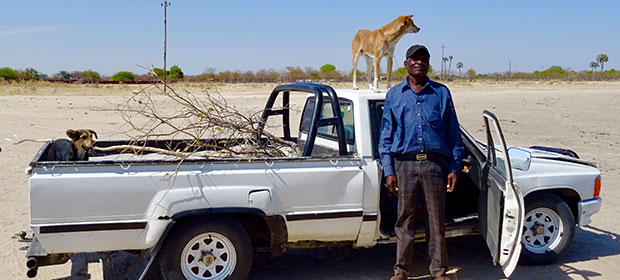
Namibia’s National Rabies Plan Endorsed By OIE
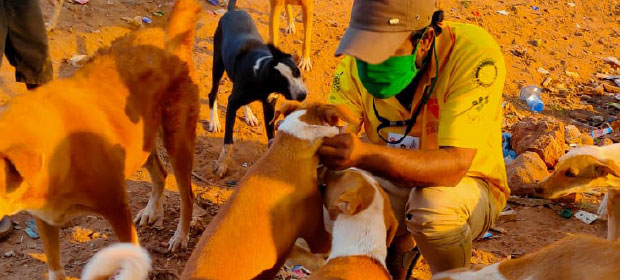
Goa Partners with NGO to Bring Rabies Deaths to Zero
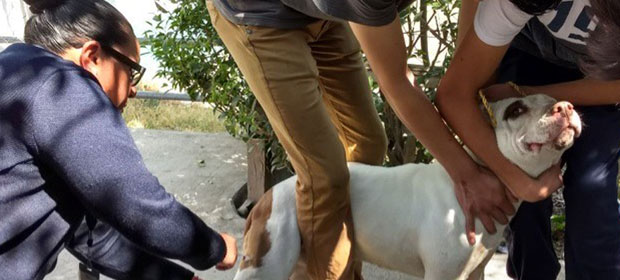
Dog Vaccination is a Public Health Issue in Mexico
Publications and Documents
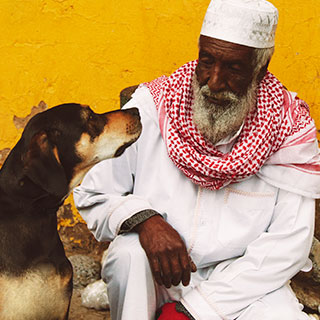
What we do
Providing a space to coordinate, share information and best practice to eliminate dog-mediated rabies.

Join us
Rabies is a disease we can beat – if we work together! Will you join us?
